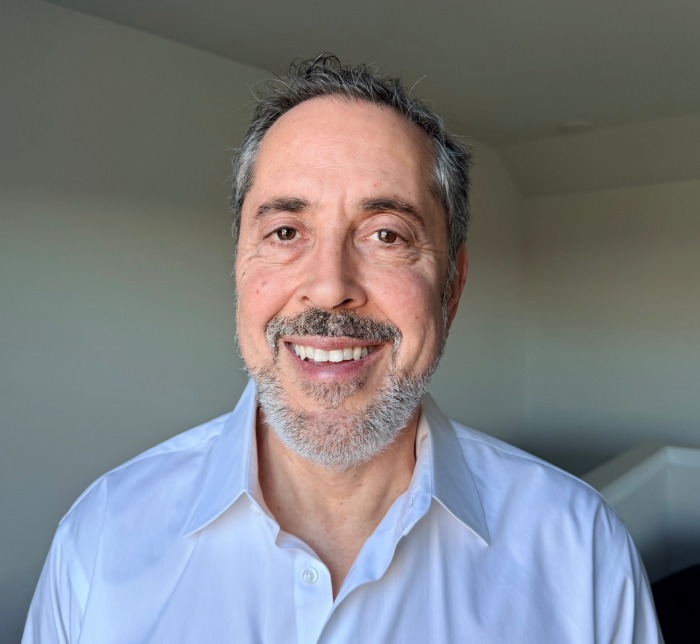Opportunities for Academic and Hospital-based Integrative Medicine in a Value-Based World
By Glenn Sabin

(Special thanks to Taylor Walsh and John Weeks for their contributions to this article.)
A colleague recently asked for an example of an economically sustainable academic medical center fully ‘integrated’ across specialties and service lines.
Regrettably, after thinking long and hard, I couldn’t come up with even one fitting that description. However, there do appear to be a few seemingly profitable outlier programs featuring direct-pay models for consults and super bills requiring patients to file their own insurance claims.
The only academic or hospital-based programs with integrative medicine fully integrated institution-wide, of which I am aware are Cancer Treatment Centers of America, Allina Health and Holy Redeemer.
Integrative Medicine in America, published in 2012 by Bravewell Collaborative, took an in-depth look at various business and clinic models built on an impressive collection of self-reported data from 19 academic programs and private clinics.
Otherwise quite comprehensive, the report curiously omitted important data pertaining to growth, profitability and specific revenue figures. Why? It’s probably because the vast majority of centers were actually running in the red.
Put simply, there’s a clear disconnect between economics and perceived value. See, the total overhead cost for these services are rarely offset directly by the revenues they generate; consequently—remarkable patient outcomes notwithstanding—the economics are unfairly and unfavorably viewed. That’s the conundrum, and, if that is all there is to work with, it sounds pretty bleak.
[Related content: The Best Clinic and Business Model for Integrative Medicine.]
But that is not all we have to work with.
The economic opportunity in fact is better today than ever… if you properly connect the dots.
Normally, when a hospital CFO compares relatively modest IM program revenues (generated by high-touch, low tech, low margin services) to more lucrative service line revenues (comprised of low-touch, high tech and high margin offerings), he sees an unsustainable, money-losing proposition.
I posit that to survive and ultimately thrive in today’s fast-changing environment, it’s crucial that academic centers, hospitals and health systems draw clear, accurate financial lines between their integrative medicine (IM) offerings and higher margin service lines.
The focus should include the total lifetime economic value of each patient. To the extent your patients are satisfied when they find these services available and, more importantly, feel they’re actually benefiting health-wise, the more likely they will be to engage your—opposed to going elsewhere—higher margin, more profitable service lines when needed. That’s the key: the big picture economics over time.
When it comes to choosing the best care facilities today’s consumers—armed with greater knowledge than ever thanks to the internet and social media influence—expect greater access to in-demand, effective integrative and holistic health services. This helps patients fully benefit from the aggregate value of true health creation. Delivering greater care and outcomes concurrent to earning greater trust and brand loyalty through cultivating a steady stream of invaluable word-of-mouth referrals is a win-win proposition.
Understanding the key drivers behind the decision-making process of today’s health consumer has not escaped hospital ‘service’ pioneer Cancer Treatment Centers of America, but few others.
Hospital system administrators need to ask themselves this: Do I want these consumers to do business with my institution or my competitor’s?
Now’s the time to connect the dots!
Here’s what I see:
Overlays Beat Silos
The days of containing integrative health programs in separate physical clinical spaces should quickly go the way of the dodo. At a bare minimum, patients across service lines should be offered the core tenets of integrative and lifestyle medicine approaches that focus on diet, physical activity and stress reduction techniques.
The literature supporting a healthy diet, stress reduction and physical activity is at this juncture both well documented and irreproachable. So why do institutional integrative medicine programs still require internal physician referrals? Program overlays that will effectively replace the highly bifurcated silos of yesterday’s care model are coming soon.
Better Use of Institutional Foundation and Philanthropic
I absolutely love the idea of philanthropic support but not for the purpose of propping up clinical programs except for the indigent. Philanthropic gifts should be used toward community educational programs around matters of self-efficacy, behavioral change, research and other non-clinical services. However, clinical programs themselves must be self-sustainable sans hat-in-hand reliance on benefactors.
[Related content: The Role of Philanthropy in the Evolution of Integrative Medicine]
Age of Health Creation; Leveraging Here and Now
Fee-for-service medicine will be a thing of the past within our lifetime. In a recent Forbes piece entitled Aetna Can’t Escape Fee-For-Service Medicine ‘Fast’ Enough, writer Bruce Japsen starts his article thusly:
“It’s beginning to play like a broken record as Aetna becomes the latest health insurer to tell Wall Street it will increase value-based payments to doctors and hospitals beyond the nearly 1 in 3 dollars it has already committed. ….Value-based pay is tied to health outcomes, performance and quality of care of medical care providers who contract with insurers via alternative models like accountable care organizations (ACOs), a rapidly emerging care delivery system that rewards doctors and hospitals for working together to improve quality and rein in costs.”
We’re entering into a new age where positive outcomes are valued over sheer volume of profitable diagnostic prescriptions and interventions; an age in which working synergistically as a collaborative team is prized over working less effectively within bifurcated silos.
Enjoying this article? Subscribe and get our latest, delivered straight to your inbox.
The new models for care that are rising now—including ACOs and PCMHs—are getting ready to start dishing out the rewards for these powerful modifications. And who is to lead this transformation?
Who more than integrative health and medicine physicians, clinicians and experienced administrators are even remotely better qualified, experienced and positioned to manage this transition: that surgical bundles are realized; that hospital readmissions are reduced; and that patients are satisfied with their care, as reported by patient surveys.
Could the stars be aligned any better?
Results from a recent survey of integrative centers speak to this alignment. The findings, from the Project for Integrative Health and the Triple Aim at the Center for Optimal Integration: Creating Health—with which Allina researcher Jeff Dusek, PhD was involved, reveal that more health systems and specialty groups are showing increased interest in the integrative centers under the value-based Triple Aim era. Second, and perhaps more striking, is that many of the leaders of these centers need to go to school on the new incentives of the emerging era to take advantage of these opportunities.
Yet clearly the Triple Aim has not taken hold as a basis for most healthcare economics. Rather,
Of course, these are still the early innings. So go ahead and grab your popcorn.
No Better Pool for Chief Wellness Officers
Dr. Michael Roizen has a pretty cool gig. As Chief Wellness Officer of Cleveland Clinic he’s actively involved across the enterprise with all things wellness. The institution now boasts an integrative medicine and lifestyle center, a Chinese herbal therapy clinic and a center for functional medicine. Not to mention an intriguing, forthcoming whole systems outcomes-based research program in the area of functional medicine for chronic disease.
Every hospital system and academic medical center should assign a CWO to oversee the process of clinical and educational health creation for patients and their families, employees, faculty and students.
Are you the best CWO candidate at your institution?
Integrative and lifestyle medicine physicians across disciplines, and armed with MPHs are best positioned to take ‘ownership’ in this forward-leaning area. If your institution (or the one you would like to join) doesn’t yet have a CWO role, it will soon.
Integrative health practitioners and administrators should ultimately become the core beneficiaries of what’s to come; after all, they’re already armed, educated, experienced and positioned to lead the inexorable march toward health creation.
Key Takeaways
- The most intelligent approach for connecting financial dots from integrative medicine services to profitability within an academic or hospital delivery setting is to look at the full picture: the aggregate health benefit to the patient which drives, brand loyalty and word-of-mouth referrals, as well as, rewarding value-based care incentives and the all-important total lifetime economic value of the customer.
- Fellowship-trained and board-certified integrative and lifestyle medicine practitioners are going to be tomorrow’s Chief Wellness Officers and leaders of health creation. If your institution does not yet have a CWO position, perhaps this is your opportunity to assume this leadership role.
- Procrastination leads to lost market share: The sooner institutions fully heed growing public demand centered on the core tenets of integrative health and lifestyle medical delivery approaches (as defined above), the quicker they will reap today’s incentives and tomorrow’s economic promise that is value-based care.
About FON
FON is a leading integrative health and medicine business development and strategy consulting firm. FON specializes in custom solutions for growing patient volume, developing programs, and increasing product sales. Our practical business models are driven by innovative marketing, clear messaging, and customer engagement via branded storytelling.
Contact us today to schedule a complimentary 30-minute consultation to discuss your business development or personal brand needs.

Glenn Sabin, founder of FON and author of n of 1, is a nationally recognized thought leader who positions health innovators, enterprises, and organizations for sustainable growth. Leveraging deep experience in media, strategy, marketing, and business development—and his own compelling cancer journey—he champions personalized medicine and the generation of real-world data and evidence to help define a new, accessible standard of care.
Read Glenn’s story.




















